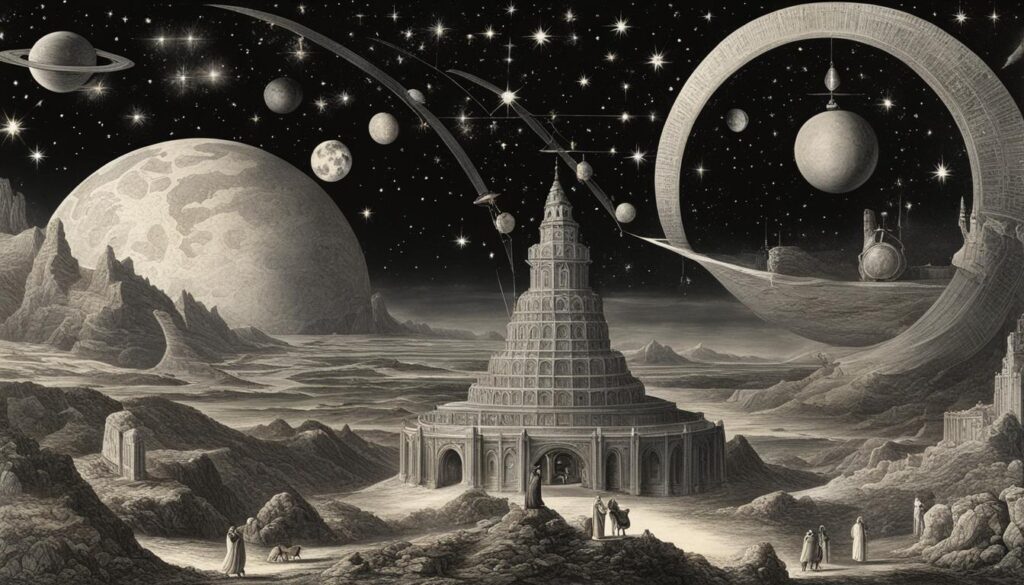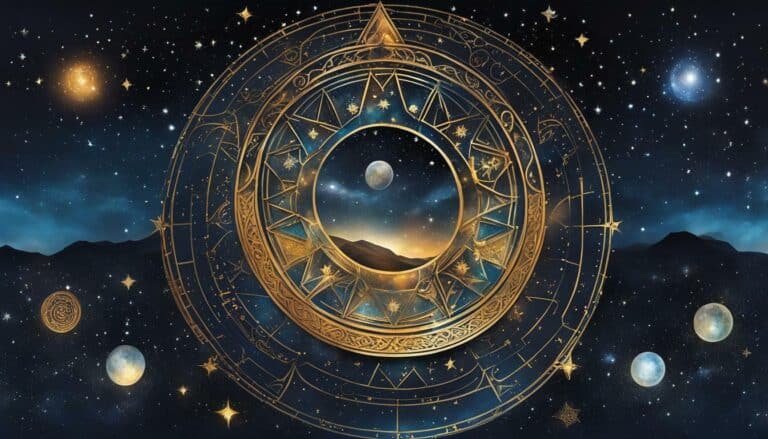Where Did Astrology Come From?
Astrology has a fascinating history that stretches back centuries, originating in ancient civilizations such as Mesopotamia, China, and Egypt. This mystical practice was deeply intertwined with astronomy and divination, as people sought insights into earthly matters and human destinies by observing the movement of celestial bodies.
The ancient Mesopotamians, known for their advancements in science and culture, used astrology as a means of divination. They believed that the gods communicated through celestial events, such as the positions of planets and stars. Similarly, in China, astrology was used to predict the Emperor’s fortune and guide important decisions based on celestial phenomena.
Egyptians linked the patterns of stars, known as constellations, to their agricultural cycles, using them as guides for seasonal activities. They observed how the rising of certain stars correlated with floods, enabling them to anticipate the fertile soil that would support their crops.
Astrology’s development took a significant leap forward with the Greeks. They assigned dates to the zodiac signs based on the relationship between the sun and the constellations, dividing the zodiac into 12 signs. The Greek astronomer Ptolemy’s influential work further popularized the concept of zodiac signs, solidifying their place in astrological practice.
Over time, astrology diverged from scientific astronomy, but its popularity endured. Today, astrology continues to captivate people’s interest, offering insights and interpretations that align with their hopes, desires, and quest for meaning.
Key Takeaways:
- Astrology has a long history that dates back thousands of years, originating in ancient civilizations such as Mesopotamia, China, and Egypt.
- Ancient cultures believed that celestial events, such as the positions of planets and stars, held insights into earthly matters and human destinies.
- The Greeks played a significant role in the development of astrology, dividing the zodiac into 12 signs and assigning dates based on the relationship between the sun and the constellations.
- Astrology diverged from scientific astronomy but continues to captivate people’s interest, offering a sense of meaning and interpretation.
The Ancient Origins of Astrology
Astrology, with its ancient origins, has played a significant role in numerous civilizations throughout history, including Mesopotamia, China, and Egypt. These ancient cultures recognized the celestial bodies’ influence and sought to decipher the messages they held for human affairs.
In Mesopotamia, the Sumerians and Babylonians intertwined astrology with their divination practices. By observing the motion of planets and stars, they believed they could track the movements of gods and gain insights into human destinies.
In China, astrology served as a tool for predicting auspicious and inauspicious times for the emperor. Eclipses and sunspots were carefully observed to determine favorable periods for ceremonies and important decisions.
Similarly, in Egypt, the constellations were associated with patterns of stars and guided seasonal activities. The ancient Egyptians believed that the celestial bodies held wisdom that could be accessed by aligning with the rhythms of the natural world.
These ancient civilizations laid the foundation for the development of astrology as we know it today. The observations, interpretations, and beliefs of these cultures have influenced the astrology practices that continue to captivate and intrigue people of various backgrounds around the world.

Conclusion
Astrology has a fascinating history that dates back thousands of years and continues to captivate people’s interest in the present day. From its ancient origins in civilizations such as Mesopotamia, China, and Egypt, astrology has evolved and adapted over time. The introduction of the concept of zodiac signs by the Greeks has had a lasting impact on astrological interpretations.
Although astrology and astronomy have diverged as separate disciplines, astrology’s enduring popularity can be attributed to its ability to offer individuals insights and interpretations that connect with their hopes and desires. Despite not being based on scientific principles, astrology holds a psychological allure and offers a search for meaning in the stars that appeals to many.
Whether one is a believer or not, astrology’s enduring allure is undeniable. Its rich history and the enduring fascination with the celestial world ensure that astrology will continue to capture the imagination of many for years to come.
FAQ
Where did astrology come from?
Astrology has its origins in ancient civilizations such as Mesopotamia, China, and Egypt. It was practiced by observing celestial bodies to gain insights into human destinies and earthly matters.
What is the history of astrology?
Astrology dates back thousands of years and has been passed down through various cultures. The Greeks played a significant role in its development, dividing the zodiac into 12 signs and popularizing astrological calculations and forecasting.
How did astrology evolve over time?
Astrology initially was intertwined with astronomy and divination. However, it later diverged from scientific astronomy and became more popular as a non-scientific practice focused on interpreting the influence of celestial bodies on human behavior.
What are the ancient origins of astrology?
Astrology originated in ancient civilizations such as Mesopotamia, China, and Egypt. In these cultures, people observed celestial phenomena to gain insights into human affairs and to predict future events.
How did zodiac signs develop?
The concept of zodiac signs emerged during the Ancient Greek period. The Babylonians had already divided the zodiac into 12 signs, which were later incorporated into Greek divination practices. The word “zodiac” comes from the Greek term for “sculpted animal figure.”
What is the difference between astrology and astronomy?
Astronomy is a scientific study that focuses on understanding celestial objects, while astrology interprets their influence on human behavior and destiny. Both were historically intertwined but diverged as separate disciplines in the 17th century.
Why is astrology still popular despite not being scientific?
Astrology continues to captivate people’s interest due to its ability to provide insights and interpretations that align with their hopes and desires. Its enduring popularity lies in its psychological allure and the search for meaning in the stars.







